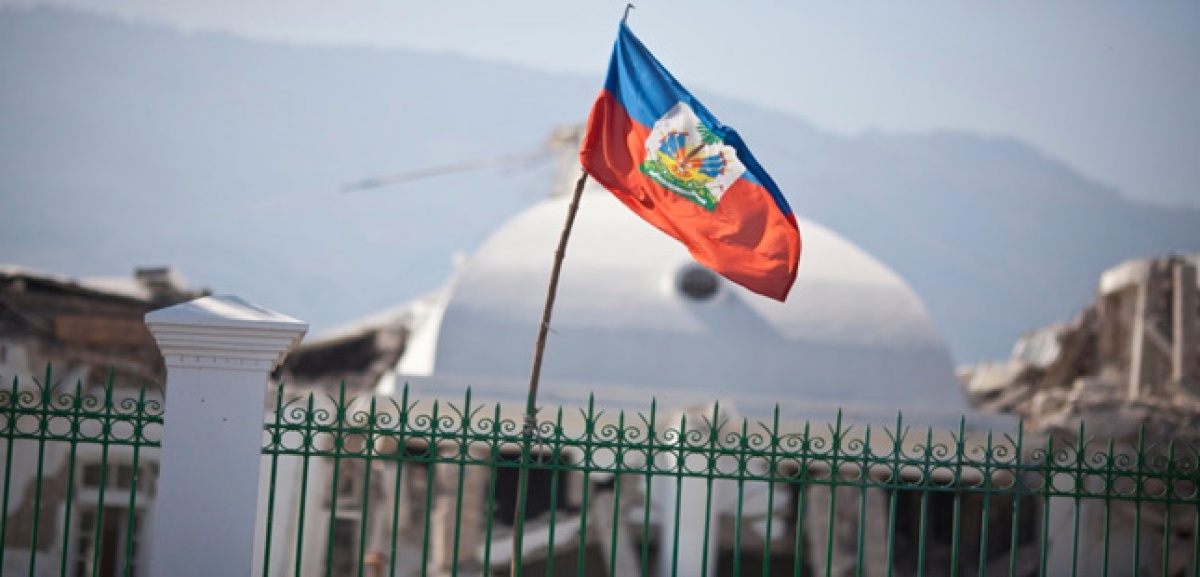Haiti, Three Years after the Earthquake
Three years ago, Haiti experienced a devastating 7.0 earthquake that killed nearly 300,000 people and shattered the country’s infrastructure.
Posted on Jan 11, 2013

We remember and mourn those who were killed—friends and colleagues, mothers and fathers, brothers and sisters—as well as those who continue to suffer its effects.
Since then, Partners In Health and its Haitian sister organization Zanmi Lasante (ZL) have continued to provide health care to hundreds of thousands of people, including earthquake survivors, with the help of our supporters and partners. We created the Stand With Haiti Fund to address the immediate needs of victims and to work alongside the Haitian government to build and renovate the country’s public health infrastructure, strengthen its public medical education system, and expand PIH’s programs for community development and poverty alleviation.
PIH has fulfilled its pledge to spend the $123 million raised after the earthquake on these efforts. While there is much still to do, the following are examples of some of our work in Haiti.

An aerial view of Hôpital Universitaire de Mirebalais taken Dec. 12, 2012, shows 1,800 solar panels on the hospital's roof.
Hôpital Universitaire de Mirebalais (University Hospital)
PIH completed construction of the $17 million, 300-bed national public teaching hospital that will open in March 2013. Located 30 miles north of Port-au-Prince, the hospital will provide primary care services to nearly 185,000 people in Mirebalais and central Haiti, and provide advanced care to patients who are referred to University Hospital from community hospitals throughout the Central Plateau and Artibonite departments, as well as parts of Port-au-Prince. The teaching hospital will eventually employ up to 800 Haitian staff and serve as the first university teaching hospital in central Haiti, providing residencies and clinical rotations for Haiti’s national medical and nursing schools.
In addition, the hospital’s 1,800 solar panels will produce 100 percent of its energy needs during peak daylight hours and feed surplus energy back into the grid, the first agreement of its kind with Électricité d’Haïti.
University Hospital is PIH’s largest undertaking to date and will improve both the standard of health care for Haitians and strengthen Haiti’s public health infrastructure.
Mental Health Care
PIH responded to the psychological needs of Haitians affected by the earthquake by more than doubling the size of its mental health and psychosocial support team. This work is supported by a recent $1.5 million Grand Challenges Canada grant to improve mental health care in countries affected by disaster and poverty.
In 2013, PIH will train community health workers to identify and support people suffering from mental health problems, including depression and post-traumatic stress, and refer them to appropriate medical facilities. A pilot program will also incorporate the use of mobile phones by community health workers to diagnose and refer patients. The new program will develop a decentralized model of mental health care to be expanded nationally in Haiti.
Dr. Thelusma checked on a 2-year-old patient at a PIH/ZL cholera treatment center in Mirebalais, Haiti, last November.
Oral Cholera Vaccine Campaign
Cholera has killed 7,750 people in Haiti since October 2010. In spring 2012, PIH successfully pioneered Haiti’s first oral cholera vaccine, delivering vaccines to nearly 100,000 people in partnership with Haiti’s Ministry of Health and the nonprofit organization GHESKIO. Since then, the World Health Organization has called for the creation of a global stockpile of 2 million doses of the vaccine.
The United Nations recently included the use of the vaccine as part of a $2.2 billion plan to eliminate cholera in Haiti and the Dominican Republic. Dr. Paul Farmer, PIH co-founder and U.N. Deputy Special Envoy to Haiti, has been appointed U.N. Special Advisor for Community-Based Medicine and Lessons from Haiti as part of this cholera elimination plan.

A container of Nourimanba stands ready for distribution to malnourished children.
Treating Malnutrition
In partnership with Abbott Laboratories and the Abbott Fund, PIH will open a new production facility in early 2013 to combat the long-standing challenges of malnutrition. Located in Corporant, the facility will be used to produce a minimum of 60 tons of Nourimanba (a ready-to-use therapeutic food) to treat up to 6,000 cases of pediatric malnutrition in its first year.
The factory will create dozens of jobs and provide a guaranteed market for more than 250 local peanut farmers. This project also will be integrated into PIH’s agricultural initiatives to improve local farmers’ skills and expertise and strengthen their ability to supply the facility with a reliable supply of high-quality peanuts. Nourimanba has been locally produced and distributed by PIH on a smaller scale since 2006.
Our work of accompaniment is not over. We will continue to provide high-quality care to our patients, and to work with the Haitian government and communities to build and strengthen public health systems. As we remember those who lost their lives, we stand in solidarity with the millions of Haitians who are rebuilding their country, while also mobilizing around all that is left to do.


